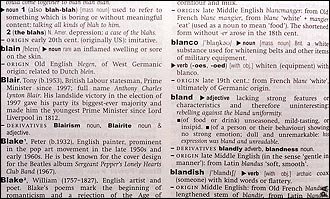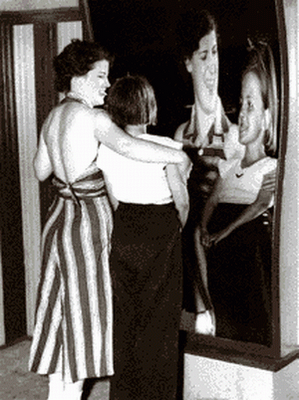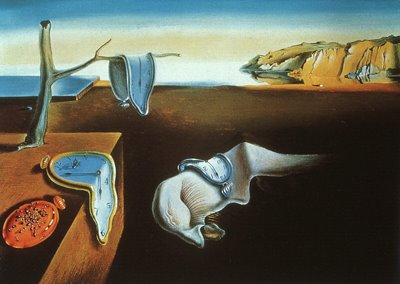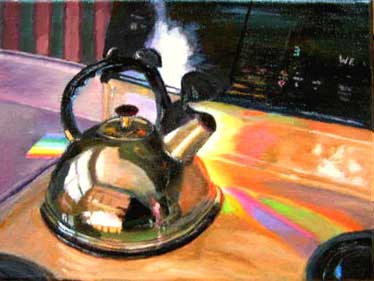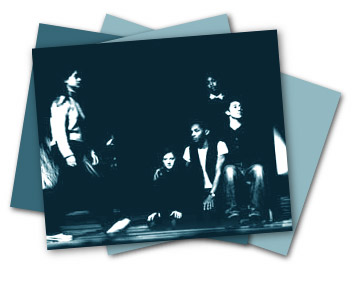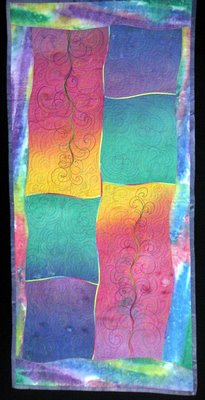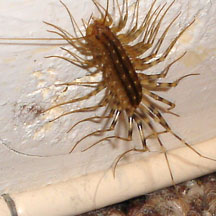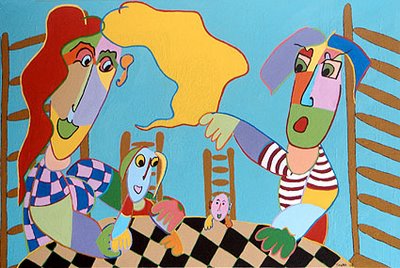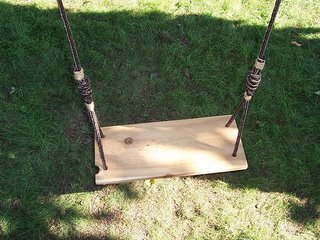 By Cindy Stringer
By Cindy StringerThey left yesterday, my three daughters, giving each other and me one last tearful hug in the edgy rush that marks such departures, as if the body’s there, but the mind is already on the road. They drove off in three separate cars to three different cities, three different lives, the next coming together months in the future.
This October morning the home we four shared for decades has not been filled with its usual sustaining tranquility, but with an unsettling silence that carries echoes of conversations, music and laughter just beyond the range of human hearing.
I find myself outside, under the huge walnut tree back of our home, sitting motionless in the swing I had made for myself when the youngest left for college, and I was alone in our home.
It is a child's retreat for a middle aged woman, a place where the mind
relaxes its nervous grip and opens to what the moment presents, the
tangibles of species, shapes and sounds of the life forms around me and
the intangibles that calm the spirit. Still an ache remains in my heart.
You wanted them to have a boundless sky, I remind myself. The day
you hear a far place call and your wings respond with eager strength, go, I
told them. Now they are on the wing. Intellect says they are adults,
they are individuals, this is what a life giver ultimately must give and
give joyfully, no strings attached.
I tell myself that as I swing back and forth, in short arcs, my feet trailing on the worn grass. I tell myself that as my eyes sweep our backyard: There we built a gazebo with benches used for sister talks, for solitary reading, for strumming a guitar and singing with your friends. There the youngest searched for pupils for the doodlebug school she had created from twigs.
A gust of chilled wind stirs the leaves of a nearby tall oak and sweeps across me. It feels good, bracing, awakening. I see the promise of early winter hurry a squirrel in its work. I hear a red bird "tsch, tsch." I see tiny brown butterflies flutter close to the ground, settle, nibble, shake their wings a time or two, then freeze into immobility, the brown wings blending into the dead leaves on the ground, indistinguishable had I not followed them to earth and stillness.
Under the walnut tree, a lone doodlebug creeps across a bare patch of ground.
Then the world stops like a projector pausing on a frame.

Everything around me is suddenly still, all movement suspended in a golden silence. I hold my breath, awed, for in that moment when the world stops, we
become one - the butterflies, the squirrel, the doodlebug, the walnut tree,
the sky, the very air and me - the bonds that tie atoms together to create
separate entities crumbling as all life forces mingle.
I flow through a transparent barrier, some part of me departing the shell I inhabit and settling on the earth to shake my wings, then blend quietly with the
leaves. There I rest until the world returns.
I am in my swing, its movement a gentle, soundless arc. Behind me, my
human nest still hugs the earth, its rooms silent and empty though crowded
with pictures, books, trophies and other outgrown possessions of the
beloved fledglings who have successfully negotiated childhood and taken
flight, leaving in every room vibrancy, imprints of music, tears,
laughter, words and deeds.
I lunch alone, thoughtful, subdued, then in late afternoon I return to
the swing. As twilight approaches, birds begin to sing from every tree
as if in protest against the night, an insistent expression of life. Full
notes formed in tiny throats stream forth in rich round tones caught by
the air and carried like luminous trails of ribbon to the skies.
How can these tiny beings with their fragile muscles and quick beating little hearts,
bring so much power and energy to the creation of music? I wonder even
as I feel my own heartbeat quicken, my throat grow round and sensitive, a channel for a song I could never create.
October brings an awareness of limitations, of songs that will never be sung.
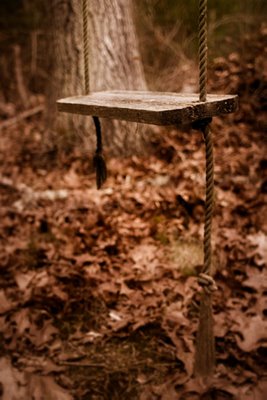
In this month of realities, we know the temporary nature of our earthly life with its busy busy, hen-scratching activities pursued in homes, offices and factories. We coexist on this earth, our mundane existence and its frantic energy too frequently an ugly construction on a beautiful orb. We shuffle and scratch in the grass, ripping it out to grab our worms, then scramble bustling and cackling to our roosts. There we tuck our heads under our wings and sleep.
Now twilight comes, and the birds are quiet. The swing stops its gentle movement. The air is chilling. Winter is on its way, but winter is a season, not an ending. Twilight silences the birds, but only until the next dawn. Life does not stop because we try to distance or remove ourselves from it rather than celebrate its joy and endure its sadness and grow from the changes it brings. Life goes on in millions of unique forms and expressions, unnoticed perhaps, unheard the songs. Still the melodies pour forth from tiny throats. Still emerge the clear, pure, brave notes.

No encounter is limited to the immediate. Each brings the past with it and takes the memory of the present into the future. I will live on in the gene memory of the red bird I startled into flight when I 'tsched' in return, in the essence of the brown butterfly who felt my thought on his minute wing, and in the smile I gave that touched the lone doodlebug, years late for school.
The life my daughters and I share has no beginning, no end, no time or place limitation, no walls. Only doors, always opening. My daughters are strong, their spirits free, their hearts true, prepared to answer destiny’s call. That is cause for celebration.
Laverne “Cindy” Stringer, a writer in Natchez, Mississippi, works in civil engineering/land surveying. Raised in a family with a strong oral storytelling tradition, she continues that tradition, creating and sharing stories from the heart with a broader audience.
 By Karen Jahn
By Karen Jahn
